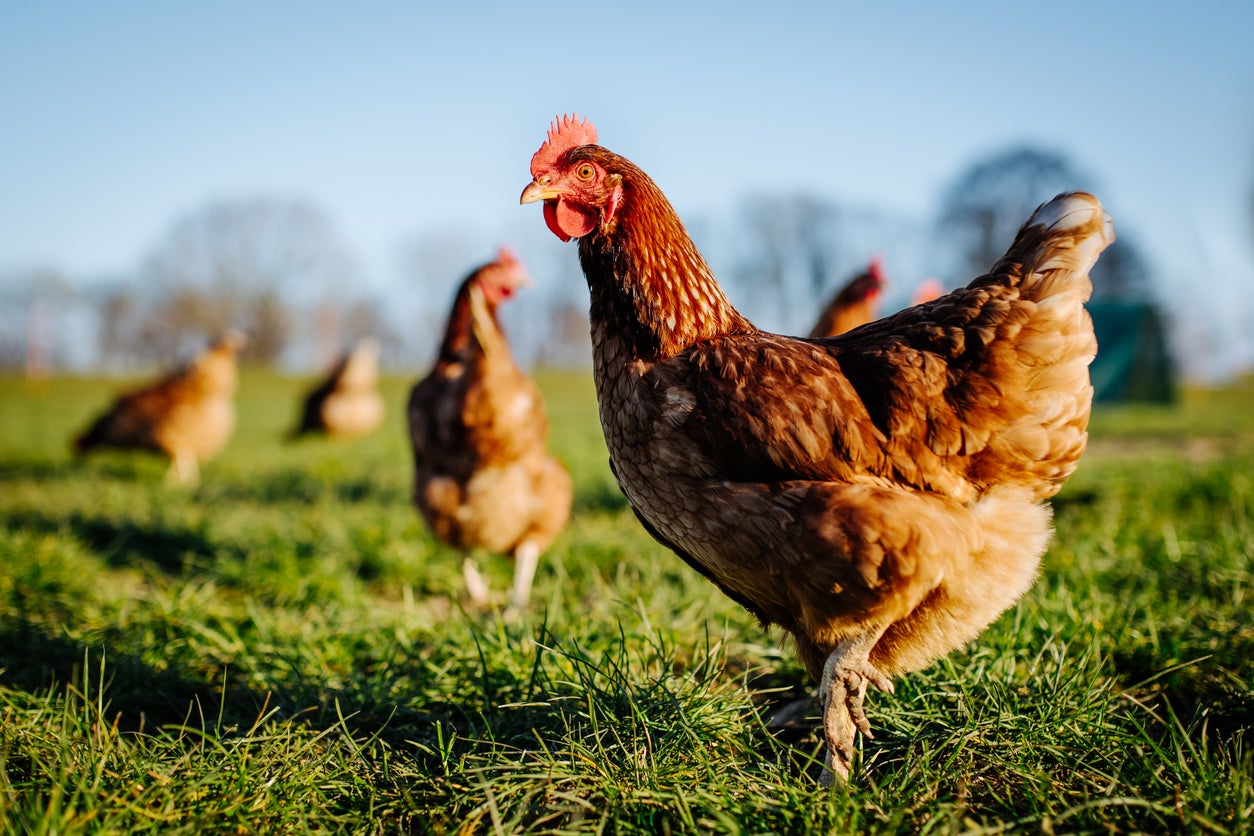We should all be choosing chickpeas over chicken – this is why
Chicken has been associated with a range of health problems, and if we all switched to plant-based diets we would reduce food-related greenhouse gas emissions by 60 per cent, writes Dr Shireen Kassam


We have mistakenly been led to believe that eating chicken is a healthy choice of protein. It is certainly better than consuming red meat, but this does not mean that its consumption is beneficial. An abundance of nutrition science demonstrates that we can make better choices for our health.
One of the main reasons people believe chicken is healthy is because it’s lower in saturated fat than red meat. This type of fat elevates blood cholesterol levels, the main risk factor for heart disease. However, when this theory has been put to the test, studies like the one published in The American Journal of Clinical Nutrition have shown that white and red meat are equally bad, elevating blood cholesterol levels to a similar degree.
Swapping chicken for plant-based protein sources such as chickpeas actually reduces blood cholesterol levels. Vegans, who consume no animal foods at all, have the lowest cholesterol levels of any diet pattern and research has shown that removing meat from the diet can be as efficacious as medications for lowering cholesterol levels.
Similarly, studies have found that eating chicken can lead to elevated blood pressure, increasing the risk of developing heart attacks and stroke and increasing the risk of type 2 diabetes, in part due to excess weight gain. Importantly, swapping chicken for plant protein such as chickpeas can significantly reduce the risk of chronic illnesses including heart disease, type 2 diabetes, fatty liver disease, kidney failure and the risk of premature death.
It is usually red meat that is considered a risk factor for developing cancer, while chicken consumption has been associated with an increased risk of developing lymphoma, a cancer of the lymphatic system. But those avoiding chicken consumption have a lower risk of blood and lymphatic cancer and individuals who exclude meat from their diet have a lower risk of cancer in general.
The broader consequences to the planet of consuming chicken cannot be ignored either. We are in the midst of a climate crisis. Farmed chickens account for 70 per cent of all birds on Earth. Rearing these animals not only means we are squeezing animals into living space – in turn decimating wildlife – but it also produces excess nitrogen, which converts to ammonia and nitrates, burning the fragile cells of land plants and poisoning the surrounding ground and waters.
In contrast, farming legumes such as chickpeas not only regenerates soil health as they fix nitrogen in their root nodules, they also have a far smaller impact on the environment, generating less greenhouse gas emissions and using less land and water resources. If we were to all switch to a plant-based diet we could release 75 per cent of farmland back to nature and reduce food-related greenhouse gas emissions by more than 60 per cent.
Antibiotic-resistant infections resulted in almost 1.3 million deaths globally in 2019. A major cause of these infections is the widespread use of antibiotics in animal agriculture, including poultry farming. Globally more than 70 per cent of antibiotics produced are used in animal farming.
Poultry represents one of the fastest-growing animal farming sectors and one of the most common sources of multi-resistant bacteria. A key part of the solution is to reduce our consumption of animals, switching to healthier sources of plant protein, including chickpeas.
While still in the midst of this pandemic, preventing the next one is of paramount importance. Unless we address the fact that three out of four new and emerging infectious threats come from farming animals and destroying their habitats, we will not be able to return to “normal life”.
Intensive poultry farming continues to generate new influenza viruses with the ability to infect humans. There have been 96 outbreaks of avian flu since 27 October 2021, with new outbreaks constantly being reported and resulting in the slaughter of thousands of chickens.
We must not forget the harm we cause to our fellow sentient animals. Around 60 billion chickens are reared each year for food. The majority of these are reared in factory farms and kept in dismal conditions causing painful heart, skin, lung and bone problems, as well as disease.
Before slaughter, factory-farmed chickens live 42 days on average. In the wild, they can live for several years. Due to increased growth rate and shortened life span, chickens can look fully grown on the supermarket shelves, despite still being chicks. Chickens also love dust bathing to prevent disease and remove parasites but factory chickens are prevented from doing this, so are often in bad condition.
We should be striving to support each other to make the best choices possible. When it comes to diet, swapping chicken for chickpeas is not only better for our health but better for the planet and the animals.
Dr Shireen Kassam is founder of Plant Based Health Professionals and is a consultant haematologist






Join our commenting forum
Join thought-provoking conversations, follow other Independent readers and see their replies
Comments